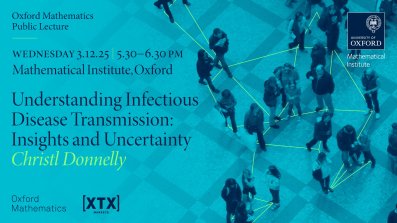Counting cycles in planar graphs
Abstract
Basic Turán theory asks how many edges a graph can have, given certain restrictions such as not having a large clique. A more generalized Turán question asks how many copies of a fixed subgraph $H$ the graph can have, given certain restrictions. There has been a great deal of recent interest in the case where the restriction is planarity. In this talk, we will discuss some of the general results in the field, primarily the asymptotic value of ${\bf N}_{\mathcal P}(n,H)$, which denotes the maximum number of copies of $H$ in an $n$-vertex planar graph. In particular, we will focus on the case where $H$ is a cycle.
It was determined that ${\bf N}_{\mathcal P}(n,C_{2m})=(n/m)^m+o(n^m)$ for small values of $m$ by Cox and Martin and resolved for all $m$ by Lv, Győri, He, Salia, Tompkins, and Zhu.
The case of $H=C_{2m+1}$ is more difficult and it is conjectured that ${\bf N}_{\mathcal P}(n,C_{2m+1})=2m(n/m)^m+o(n^m)$.
We will discuss recent progress on this problem, including verification of the conjecture in the case where $m=3$ and $m=4$ and a lemma which reduces the solution of this problem for any $m$ to a so-called "maximum likelihood" problem. The maximum likelihood problem is, in and of itself, an interesting question in random graph theory.


